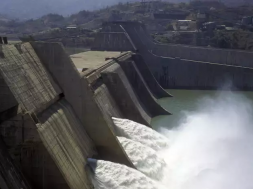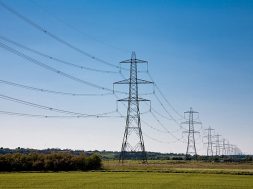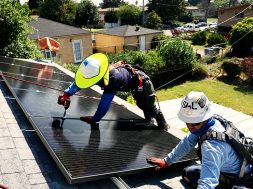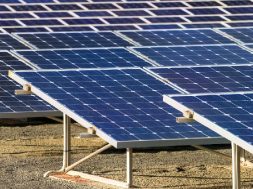
Mumbai Society Harvests Upto 13K Litres Rainwater/Day, Saves Lakhs Using Solar Power
In 2017, the society exported surplus solar-produced electricity to a power distributing company and saved a whopping Rs 2.6 lakh. Not only that, it also converts 900 Kgs of waste into compost every month!
For residents of Bhoomi Arkade, a 19-storey-high rise in Kandivali East area of Mumbai, every season is an opportunity to accomplish their eco-friendly goals. Solar panels harness the sun’s energy during summers, spring is a time plant more and monsoons mean water conservation.
Led by the society’s secretary Harish Shakar Kate, 76 families had pledged their allegiance to green practices in 2010. It started with Rain Water Harvesting (RWH), which was followed by waste management and then using clean energy a few years later.
I have always been inclined towards greener choices. When the government introduced the policies on rainwater harvesting and waste management, I was charged up to implement them in my building. All I had to do was open people’s eyes to the benefits and they were on board, Kate tells The Better India (TBI).
Rainwater Harvesting
The society began with RWH back in 2010. Rainwater collected on the terrace is sent to a tank on the roof through a pipe. The tank supplies water to the toilets of each flat.
Throughout the monsoon season, even if there is an average rainfall of 10 mm, the overhead tank collects 13,000 litres of water. Besides, fulfilling the annual water needs of flush tanks, the collected water is enough to suffice other non-potable needs of the residents for approximately 68 days, says Kate.
Kate also informs that flats have installed water aerators on taps that control the water flow thereby reducing water wastage up to 60 per cent. As part of their future plans, the society will soon explore greywater recycling techniques.
Waste Management

Before implementing waste segregation, Kate had organised a couple of awareness seminars inviting garbage management experts.
Only when people are fully aware about why segregating is needed and how it will help the environment will they take the effort to discard dry and wet waste separately, says Kate.
Each flat has been given two stainless steel bins with their flat numbers carved on them for dry and wet waste. The recyclable waste further gets segregated into plastic, glass, electronic waste, paper and so on. The society sells the dry waste to the local scrap dealers once every two weeks.
Meanwhile, the society’s decentralised composting system converts 900 kilos of wet waste into 150 kilos of compost every month which is added to the gardens.
Solar Panels

40 solar panels, each with 12 kilowatt capacity, produces 55-60 units of electricity daily that power common lights, fans, lift, and water pumping station.
During summers, the units generated go up to 500 while the building’s requirement is around 120.
The surplus is exported to power distributing company and this gets credited in the building’s electricity bill every month. We have installed a net meter to check how much electricity units get credited in the monthly bill, explains Kate.
A year after the solar panels were installed, the society managed to save a whopping Rs 2.6 lakh. Furthermore, another way the society saves power is by using sensor lightning in the corridors and lifts.
The project was funded from the monthly maintenance money and the residents did not have to shell out extra to pay for the projects. The maintenance and operation of the composting unit, overhead tanks and solar panels is done by the housekeeping staff of the society.

Among other eco-friendly initiatives, the society is aggressively promoting the use of reusable bags to replace plastic ones, “We had distributed around 1,000 cloth bags right after Maharashtra imposed a plastic ban in 2018. The society has also prohibited bursting crackers and burning of garbage.”
The commitment shown by each resident of the society in practicing water conservation, waste management and other eco-friendly activities despite space and financial restraints is a lesson many can learn from.
















